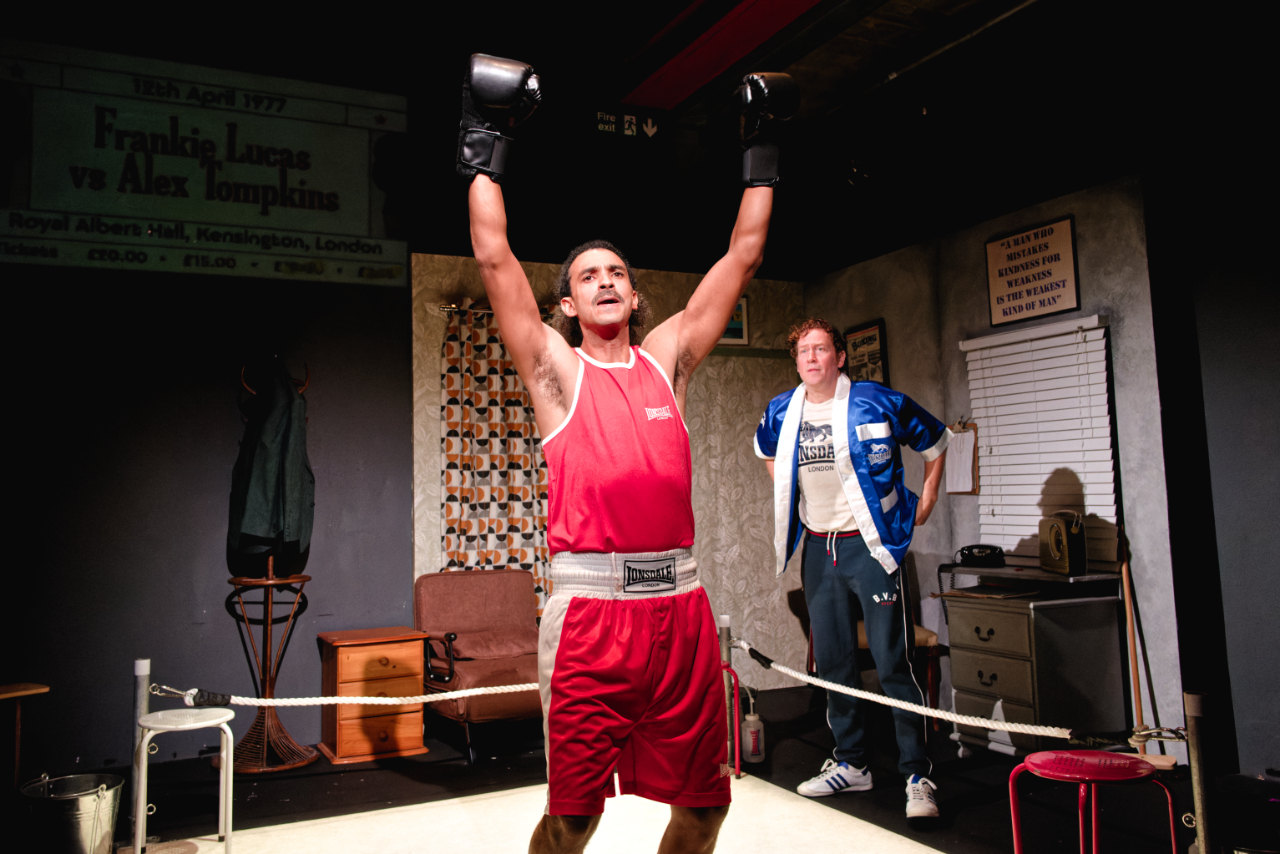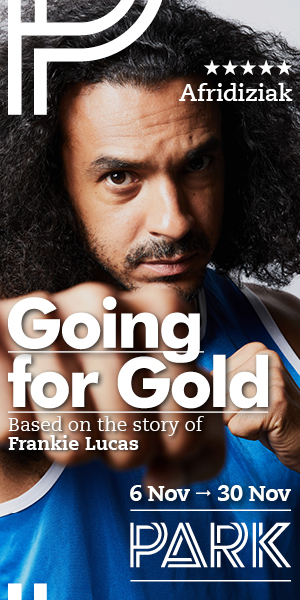Going for Gold at Park Theatre

Numerous needle drops provide the pulse of this biographical portrait of the Vincentian-British boxer Frankie Lucas’s curious trajectory, but none are more telling than a brief, cheeky invocation of Bill Conti’s iconic Rocky theme song. To many, it is the very sound of triumph against the odds through sheer hard work, an ethos that Lucas’s story will harshly refute come its end.
With his eager fighting spirit and dogged determination to be the best, Lucas (played here by Jazz Lintott) makes for an underdog you can root for, but his story, as told by writer Lisa Lintott and co-directors Philip J Morris and Xanthus, will ultimately be one of anti-climax. In reality, Lucas would only fight professionally on 17 occasions, passed over to represent England in the 1974 Commonwealth Games and eventually disappearing altogether, to the point of being presumed dead. Thus, the dramatic tension of Going for Gold is found less in the fights than in the struggle of getting to fight at all, not least with a thicket of bureaucracy to face down. Ours is a hero repeatedly left high and dry, denied even the typical crests and troughs of a conventional sporting career.
Much of Lucas’s story may be recounted in direct addresses to the audience by his wife Gene (Llewella Gideon), but in her recollections, he remains unknowable, too much in pursuit of a dream that eluded him to pay much heed to his home life. Thus, the fledgling boxer’s interplay with his coaches and managers (a fatherly Cyril Blake; a tough-but-fair Nigel Boyle) provide the play’s real dramatic spine. These are the men who will both butter him up and later attempt to let him down easy, who will encourage and dash his dreams. Indeed, as a protagonist Lucas can feel so defined by the push-pull of his ambition and the bitter sting of his circumstances that one sometimes wishes for a slightly more in-depth psychological portrait. We know he wants only to be granted a fair fight on fair terms, but come play’s end it can still feel as if we know little more of him than that.
Nonetheless, this is a confidently mounted play with a propulsive sense of forward momentum, its small stage imbued with enough lively performances and technical skill to seem far more expansive. The energy only truly flags in the homestretch that rockets us into the much more recent past, with an aged, frail Lucas forced to reckon with the now adult son who grew up without him (Daniel Francis-Swaby). This last act manages a tender balance of tribute to the boxer’s undersung legacy and skill with a confrontation of his larger personal shortcomings. Still, it can feel like a challenge to wholly reckon with the triumph and tragedy of his older self when it still feels we scarcely know the young man he was. Perhaps the way things turned out for Frankie Lucas will always remain to some degree unknowable, and in this play, that story is engagingly and affectionately half-told.
Ultimately, Going for Gold is a briskly engaging bio-drama that achieves only a limited grasp of its subject, but perhaps this is fitting for a man always moving at too great a pace to see his own life passing him by. At its best, the result is a compelling anti-underdog story, with an undertow of harsh criticism for a sports world that would keep one in place as a forever pawn just as readily as it would make a new king.
Thomas Messner
Photos: James Potter
Going for Gold is at Park Theatre from 6th until 30th November 2024. For further information or to book visit the theatre’s website here.
Watch the trailer for Going for Gold at Park Theatre here:

























Facebook
Twitter
Instagram
YouTube
RSS